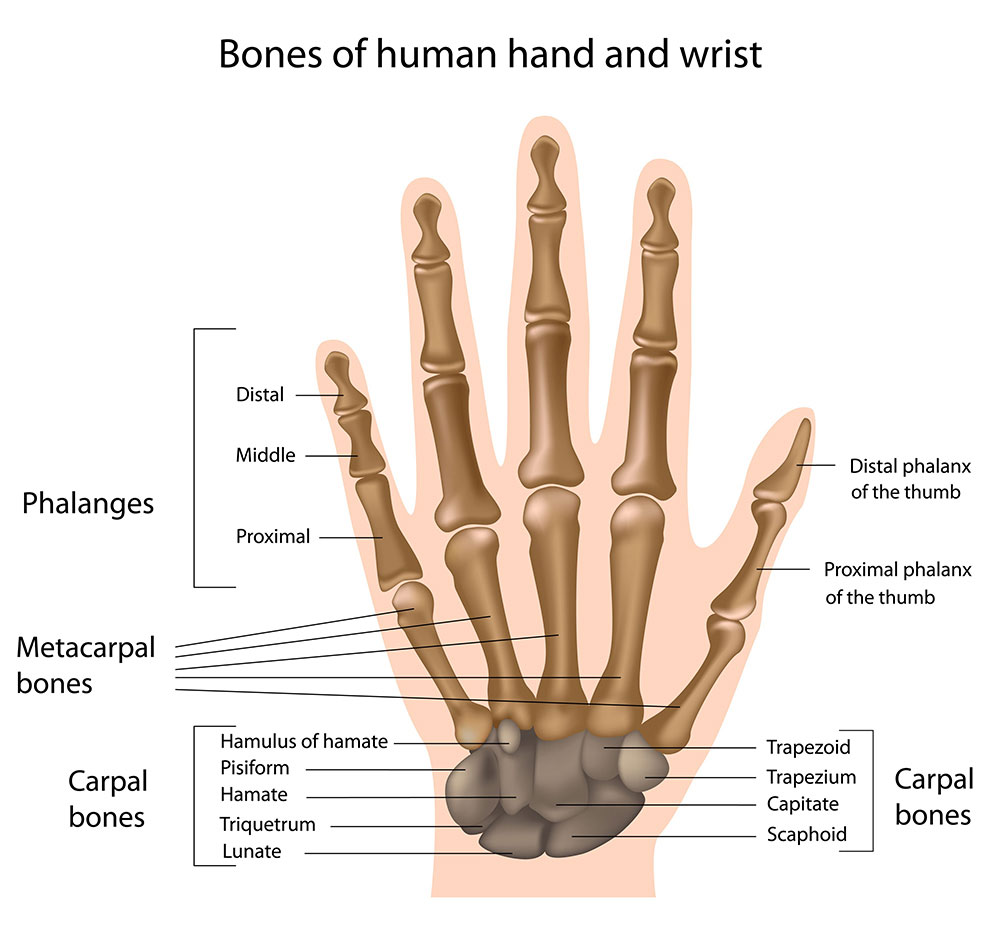What Causes Numbness in Hands? Common Causes, Injuries and Diagnoses

Like many aches, pains and frustratingly unspecific symptoms, numb hands can be caused by a whole host of environmental factors, personal health factors and a variety of medical conditions.
Before falling down a rabbit hole of unlikely and scary diagnoses, however, it’s important to know that the most common causes of numb hands aren’t as serious – or as scary – as the internet may lead you to believe.
Is Numbness in the Hands Serious?
Much more often than not, the answer to this question is no.
While numb hands can be one of the many symptoms caused by uncommon or rare brain and nervous system conditions (such as spinal cord injuries, strokes and Guillan-Barré syndrome), chronic conditions (like diabetes, multiple sclerosis and alcohols use disorder) and infectious diseases (such as Lyme disease and syphilis), the most common causes of numb hands are treatable orthopedic injuries and conditions.
And while the numbness you’re experiencing most likely is not a sign of a “serious” medical condition, it can affect your work, relationships, recreational activities and sleep. If the numbness in your hands is affecting your life in a noticeable way or if it worsens over time, it’s best to get off the internet and seek the professional advice of a doctor.
Orthopedic Injuries That Can Cause Numb Hands
If you’re experiencing numbness, tingling or that “falling asleep” feeling in your hands and fingers, the most common causes are orthopedic.
Hand, Wrist and Elbow Injuries
Carpal Tunnel Syndrome
According to the National Institute of Health’s National Center for Biotechnology Information, “carpal tunnel syndrome is an entrapment neuropathy caused by compression of the median nerve as it travels through the wrist’s carpal tunnel.”
In laymen’s terms, carpal tunnel syndrome results from repeat pressure on the narrow “tunnel” made up of carpal bones in your wrist that protects the nerve and tendons that allow your fingers and thumb to bend. This pressure can cause chronic compression of the median nerve, which in turn causes pain, numbness and tingling in the hand and fingers.
With more than 3 million cases in the United States every year, carpal tunnel syndrome accounts for 90 percent off all peripheral neuropathies (weakness, numbness and pain in the extremities from nerve damage) and women are three times more likely than men to suffer from carpal tunnel syndrome.
As for causes of carpal tunnel syndrome, the NCBI states that the most common causes include “genetic predisposition, history of repetitive wrist movements such as typing, or machine work as well as obesity, autoimmune disorders such as rheumatoid arthritis, and pregnancy.”
Cubital Tunnel Syndrome
After carpal tunnel syndrome, cubital tunnel syndrome is the second-most common peripheral neuropathy and can cause numb hands and tingling in the hand or ring and little finger. Also known as ulnar nerve entrapment at the elbow, cubital tunnel syndrome happens when the ulnar nerve – which runs from your neck to your hand – is irritated or compressed.
According to the American Academy of Orthopaedic Surgeons, the most common compression spot for the ulnar nerve is behind the inside of the elbow, as it has very little soft tissue for protection in the narrow space in which it sits.
Common causes and risk factors for cubital tunnel syndrome include elbow arthritis and swelling, previous elbow dislocations and fractures, cysts near the elbow joint, a direct blow to the elbow and repetitive activities that require you to bend, flex or put pressure on your elbow.
Neck and Spine Injuries
Brachial Plexus Injuries
The brachial plexus is the network of nerves that run from your spinal cord to your shoulders, arms and hands. These nerves send signals to your extremities, and when they’re irritated, compressed, stretched or torn from the spinal cord, they can cause injury, pain and numbness in the hands and arms.
Minor brachial plexus injuries are typically sport-related, though some brachial plexus injuries are caused by inflammation, tumors or even trauma during birth. Severe brachial plexus injuries typically are caused by traumatic accidents and can lead to loss of function and sensation or even paralysis.
Brachial plexus injuries are far less common than carpal and cubital tunnel syndromes and often result in more serious symptoms.
Cervical Spondylosis
More common than brachial plexus injuries, cervical spondylosis refers to age-related wear and tear to the spinal disks in your neck. According to the Mayo Clinic, over 85 percent of people 60 and older suffer from some form of cervical spondylosis.
While many older Americans have cervical spondylosis, most people do not experience any symptoms. The most common symptoms are neck pain and stiffness; however, a pinched spinal cord or nerve root can cause weakness, tingling and numbness in your arms and hands and other extremities.
If you’re experiencing numbness or tingling in your hands, fingers or arms, and would like to talk to an orthopedic surgeon about your symptoms, please feel free to contact us.

4 Comments
Permalink
I am left handed to the core however for the past several months my right wrist/ arm haS chronic pain, not 24/7 but through out the day. I’ll get sharp pain about Alf way up and on the top side of my arm that’s almost unbearable. The smallest movements can trigger pain for example flipping my handball side up will cause the pain and it’s will be in my wrist as well. Last thing my left hand goes numb more often then not. Like it’s number amd painful most of the time it will stay like that for a week or so non stop then it will go away only to creep up suddenly once again. The Pain radiates from what feels like my shoulder blade on the left side, almost like there’s a knot there. My entire arm is painful and the numbness is horrible keeps me up , any ideas?
Permalink
Hi Samantha,
Sorry to hear you’re struggling with pain in your arm and wrist! With the information you’ve given it sounds like you may have Carpal Tunnel Syndrome, although without a proper exam I can not be certain. The best option for you would be to see a hand and wrist specialist or sports medicine doctor so they could properly diagnose the issue and administer the right treatment for your diagnosis. Their non-surgical treatment options will most likely be physical therapy, bracing or anti-inflammatory injections. However, if you do have Carpal Tunnel and it is a severe case, surgery will be required to relieve your symptoms and prevent any permanent nerve damage.
If you would like to try some treatment from home before seeing your doctor I would suggest taking more frequent breaks while working with your hands to stretch and let your wrists rest. Try avoiding the activities that make your symptoms worse and apply a cold pack to wrist for 15 minutes to reduce swelling. You could also purchase a wrist stabilizing brace off of Amazon to wear on especially painful days or to wear during activities that normally worsen your symptoms.
Hope this helps! Best of luck with your recovery.
Permalink
I have a small hard bump below my ring finger. It has also been in the past went away.
That hand has gone numb in the night but I was laying on it.
I’m sure I’ve layed on it many times without it going numb though.
Permalink
Kim,
A small hard lump on your hand could be multiple things. If your hand is intermittently going numb, it’s best to get it checked out. I would recommend seeing an orthopedic upper extremity specialists for evaluation and treatment options.